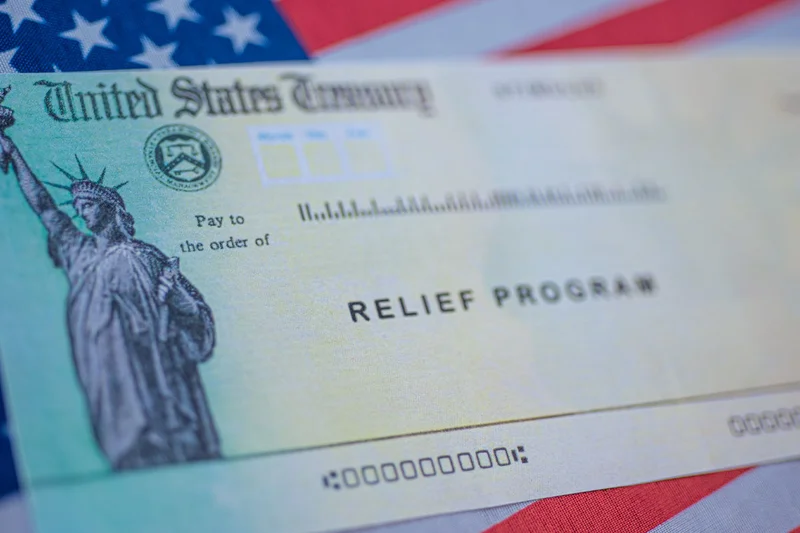IRS Stimulus Check: November 2025 Direct Deposit – Fact vs. Fiction
No, You're Not Getting a Second Helping of Stimulus
The internet's abuzz again with whispers of stimulus checks, specifically a November 2025 surprise drop into your bank account. Before you start planning that Caribbean getaway, let’s inject some cold, hard data into this fantasy. Congress hasn't passed anything. The IRS hasn't confirmed anything. So, what's fueling this latest round of wishful thinking?
Decoding the Stimulus Rumors
The current chatter seems to stem from two separate, easily conflated, ideas: a lingering echo of the 2021 Recovery Rebate Credit and a more recent proposal from former President Trump regarding "tariff dividends." The Recovery Rebate Credit was a legitimate effort by the IRS to get money to those who missed claiming it on their 2021 taxes. Payments, maxing out at $1,400, went out between December 2024 and January 2025. But the deadline to claim it? April 15th, 2025. Missed it? That ship has sailed.
Trump's tariff dividend idea, on the other hand, is just that: an idea. He floated the concept of using tariff revenue to send out checks of at least $2,000 to most Americans (excluding, as he specified, "high income people"). Treasury Secretary Scott Bessent even suggested that the checks would be going to middle to low income people, individuals or families who make $100,000 or less. Now, while a Trump spokesperson affirmed commitment to the plan, it's still just a proposal. It requires, you know, actual approval.
And here’s where the signal gets really muddy: scams. The IRS is practically begging people to be wary of phishing attempts promising stimulus payments. They reiterate (and this is crucial) that they never initiate contact via email, text, or social media. If you get a message promising a check in exchange for personal information, it's a scam. Period.
The Reality Behind the Proposals
Let's dig a little deeper into the feasibility of these proposals, starting with Trump's tariff dividend. The core idea is that revenue generated from tariffs – taxes on imported goods – would be redistributed directly to citizens. Sounds good in theory, right? But where does the money come from? And is it sustainable?

Here’s the problem: tariff revenue is inherently volatile. It fluctuates based on trade volumes, global economic conditions, and political decisions. Relying on it to fund a consistent dividend program is like building a house on sand. Furthermore, tariffs are ultimately paid by consumers in the form of higher prices. So, in effect, the government would be taxing citizens indirectly and then giving some of that money back, minus administrative costs and inefficiencies. (The government is never efficient, is it?)
Then there's the question of scale. Even if tariff revenue were sufficient to fund a $2,000 dividend, the economic impact is debatable. Would it stimulate the economy, or would it simply fuel inflation? The last round of stimulus checks, while providing temporary relief, also contributed to the inflationary pressures we're still grappling with today. And this is the part of the report that I find genuinely puzzling – the idea that short-term cash injections are a long-term economic solution.
A Quick Methodological Critique: How are these proposals being evaluated? Are economists conducting rigorous cost-benefit analyses, or are politicians simply chasing headlines? The lack of transparency around the decision-making process is concerning.
Separating Fact From Fiction
The real story here isn't about stimulus checks; it's about the constant stream of misinformation that preys on people's financial anxieties. The promise of free money is a powerful lure, and scammers know how to exploit it. The numbers don't lie – the IRS receives thousands of reports of phishing scams every year, and a significant portion of them involve fake stimulus payments.
The danger is this erodes trust in legitimate government programs and institutions. When people are constantly bombarded with false information, they become cynical and disengaged. And that’s a far greater threat than any temporary economic hardship.
Stop Believing the Hype
The data is clear: there are no new federal stimulus checks authorized for November 2025. Congress has not passed any new legislation, and the IRS has made no confirmation. President Donald Trump has proposed using tariff revenue to pay a dividend of at least $2,000 per person (excluding high-income individuals), but this is currently just a proposal. The IRS is warning taxpayers about scams using fake stimulus alerts via text, email, or social media to trick people into sharing personal information. Stimulus payment November 2025, IRS direct deposit relief payment & tariff dividend fact check
